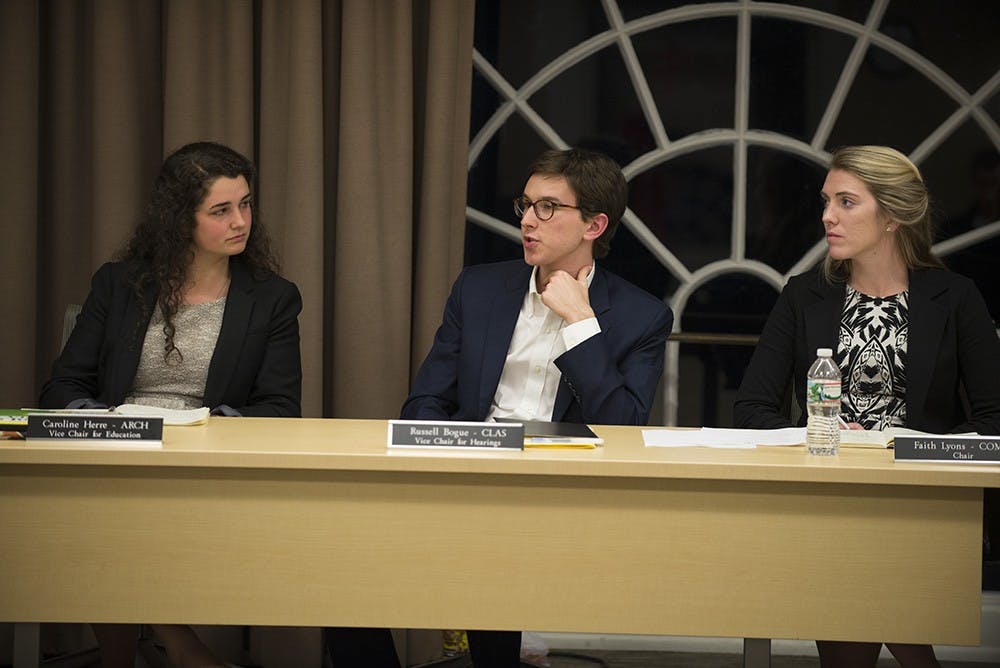The Honor Committee held its first meeting of its new term Sunday headed by its newly-elected 2015-2016 Executive Board.
In their new roles, the newly-elected representatives said they hope to act as voice for students, representing their best interests and helping to unite the University community.
Newly elected Vice Chair for Trials Russell Bogue, a third-year College student, said the previous executive board left a solid foundation upon which the new executive board can build.
“The 2014-2015 Committee made a number of important changes to our by-laws to codify existing policies, clarify ambiguous practices and provide a much more robust process for students with contributory mental disorders who are reported to Honor,” Bogue said. “They left us with a firm foundation from which to tackle the challenges unique to our term, such as the interpretation of the Honor Referenda.”
In his role, Bogue will oversee entire trial processes within Honor, from the accusation of a student to the verdict at a trial.
“I plan to investigate our post-accusation processes identify problematic areas where our by-laws may be unclear,” Bogue said. “As a member of the Executive Committee, I plan to work with the rest of Committee to articulate a vision for the coming year and then take action to implement this vision.”
Newly appointed Nursing School Representative Maggie Rossberg, a second-year student, said making Honor a better representation of the student body will help to create a stronger and more unified community.
“Martese Johnson said it best [Sunday] night at our meeting — we are not representing only our own opinions,” Rossberg said. “We were voted into this position by thousands of students and need to act not only out of our own values, but of the students we represent as well.”
The University of Virginia Honor Committee, 2015-2016
Source: University of Virginia Honor Committee website
Rossberg said the stigma of elitism surrounding the organization and potential reforms to the single-sanction system are important issues currently facing the Honor Committee.
“It's very easy to think that honor is an elitist group that does not listen to the student body, but we are not that in the slightest. We want to engage all students and let them know that honor is on their side,” Rossberg said. “For a multi-sanction system, whether or not it is passed, it is going to be impossible to please all students and faculty, so the backlash from that will be significant.”
Rossberg said she thinks the Honor Committee should look to increase student awareness and faculty involvement in order to increase its effectiveness.
“In terms of school wide Honor, I would love to see Honor be more in touch with the average student at U.Va.,” Rossberg said. “I have seen and heard that many people obviously know what Honor is, but have no idea what we actually do and vote on.”
Rossberg said she hopes to expand the size and diversity of Honor’s support officer pool and to increase faculty support.
“I think honor can be more proactive in talking to professors because they are the main enforcers of honor at U.Va.,” Rossberg said. “By increasing support from faculty, we can better represent the student body because they bring ideas and skills to the table that the committee simply does not have.”







